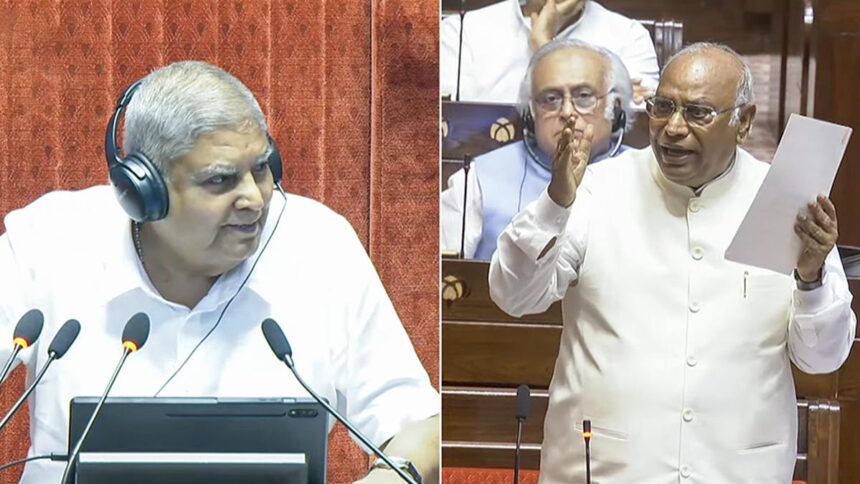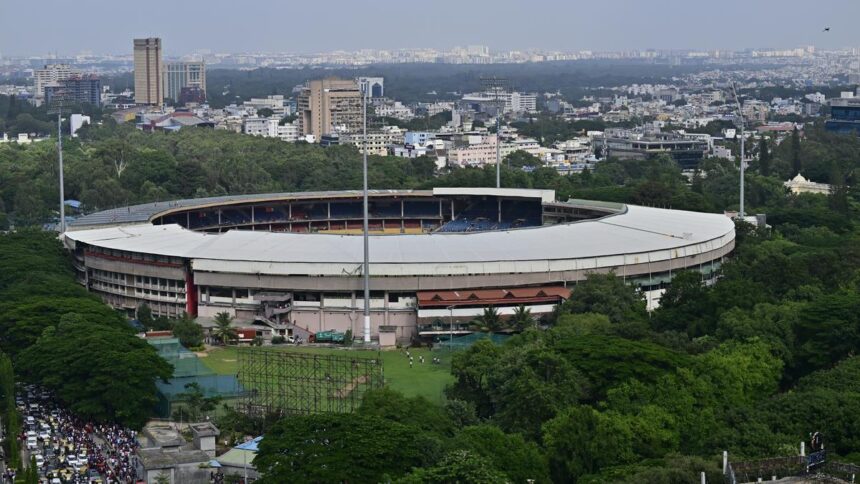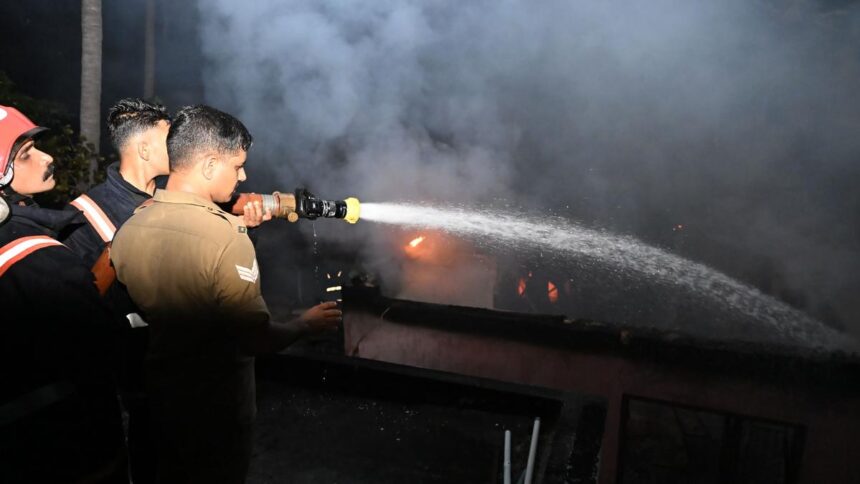
Madras High Court. File
| Photo Credit: The Hindu
The Tamil Nadu theatrical rights holder of Vijay Deverakonda starrer ‘Kingdom’ has approached the Madras High Court to restrain Naam Tamilar Katchi (NTK) chief coordinator S. Seeman and his followers from interfering with the screening of the movie in cinema halls on the alleged ground that it portrays the Tamil Eelam issue in a derogatory manner.
The writ petitioner SSI Production also sought a direction to the Director General of Police, Greater Chennai Commissioner of Police and Coimbatore Commissioner of Police to provide adequate police protection to the cinema theatres screening the movie. The petition has been listed for hearing before Justice D. Bharatha Chakravarthy on Wednesday (August 6, 2025).
Filing an affidavit in support of the writ petition, K. Abhilash of SSI Production stated that the Telugu movie ‘Kingdom’ had been produced with a huge budget of ₹130 crore. It had been produced by Sithara Entertainments and directed by Gowtam Tinnanuri, who had received the national award for his previous film Jersey under the best Telugu film category.
Further stating that famous music composer Anirudh Ravichander from Tamil Nadu had scored the music for ‘Kingdom’, the deponent said the Central Board of Film Certification (CBFC) too had issued a certificate on July 30, 2025 for its theatrical release. However, on August 4, 2025, Mr. Seeman had raised a complaint about the movie by tweeting on his X handle.
This had led to his followers issuing threats to some of the cinema theatre owners in Chennai and Coimbatore against the screening of the movie. “Some cinema hall owners have already expressed apprehension and reluctance to continue screening the film due to the fear of law and order disturbances… It has also created fear among the general Public and theatre staff,” the deponent said.
Pointing out the CBFC was the statutory authority to certify whether a film was fit for public exhibition or not, the petitioner said the political parties could not take law into their hands and prevent the exhibition of movies. It would amount to curtailing the fundamental right to speech and expression and the police were duty bound to interfere when such a right gets threatened, it added.
The petitioner also relied upon the Supreme Court verdicts in S. Rangarajan versus P. Jagjivan Ram (1989) and Nachiketa Walhekar versus CBFC (2018) wherein it had been held that once a film had been cleared for public screening by the CBFC, it could not be subjected to extrajudicial censorship or prevented from public screening by private individuals or organisations.
Published – August 06, 2025 10:40 am IST






















